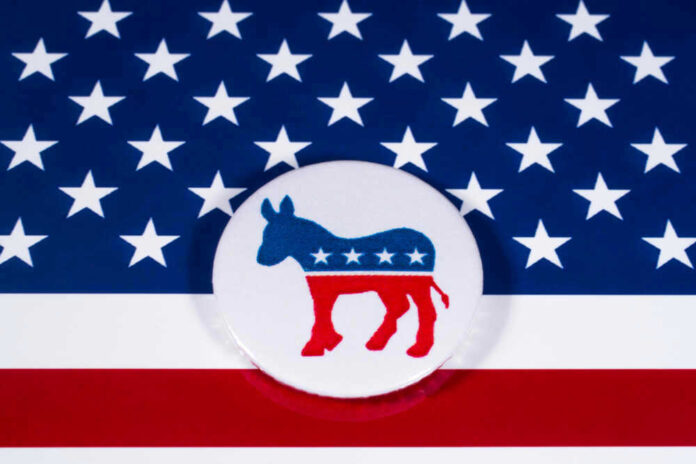
While Democrat District Attorney Alvin Bragg touts a drop in violent crime, frustrated business owners and fed-up residents are left wondering why shoplifting continues to ravage their neighborhoods with no end in sight.
At a Glance
- Manhattan DA Alvin Bragg faces criticism as retail theft and shoplifting surge persists in New York City.
- Bragg’s policies prioritize alternatives to incarceration for nonviolent offenses, sparking fierce debate.
- Violent crime rates have declined, but property crime remains a major political flashpoint.
- Retailers and law enforcement unions demand tougher prosecution of repeat offenders.
Manhattan Retailers Slam Bragg as Shoplifting Skyrockets
Ask any small business owner in Manhattan these days what keeps them up at night, and you’re going to hear a familiar story: brazen shoplifters emptying shelves, security footage of thieves walking right out the door, and prosecutors who seem more interested in “reform” than actually protecting honest, hardworking Americans.
Manhattan’s commercial corridors, once the pride of a city that never sleeps, now face a daily grind of retail theft that has become as predictable as the sunrise—and the blame is landing squarely on DA Alvin Bragg’s desk.
Retailers aren’t just losing merchandise—they’re closing stores, cutting hours, and laying off workers. National brands and mom-and-pop shops alike are demanding answers, but Bragg’s office appears determined to double down on soft-on-crime policies.
While the DA’s office claims violent crime is down, business owners point to the boarded-up windows and empty storefronts as proof that property crime is the real crisis. If the goal was to make it easier to do business in Manhattan, these policies are achieving the exact opposite.
Policy Priorities or Public Safety: Bragg’s Balancing Act
Since taking office in January 2022, Bragg has repeatedly emphasized “alternatives to incarceration” for low-level, nonviolent offenses. The DA’s official priorities focus on gun violence reduction and fairness in the justice system, with efforts to divert shoplifting cases away from prosecution and toward social services.
These policies might sound good on paper, but for the average New Yorker who’s tired of watching shoplifters stroll out unpunished, the reality is infuriating. Critics argue that this leniency has created a “get out of jail free” climate for repeat offenders, emboldening organized retail theft rings and undermining public safety.
Law enforcement unions and Bragg’s GOP opponent in the 2025 DA race have seized on this frustration. They argue that the DA’s approach is sending the wrong message: If you steal, you won’t face serious consequences.
Meanwhile, business associations warn that the city’s economic health is tied directly to public safety and retail stability. Calls for tougher prosecution are growing louder and more urgent with each new wave of theft.
Crime Statistics: The Numbers Behind the Debate
Bragg’s campaign boasts about reductions in violent crime—shootings down 66%, murders down 47%, and overall index crimes down 10% over the past two years. These numbers, sourced from NYPD statistics, are impressive on the surface and have been touted as evidence that his policies are working.
Yet these very statistics have become a political football, with critics insisting that they obscure the lived reality of rampant shoplifting and property crime in Manhattan’s neighborhoods. While the DA’s office has created specialized units for worker protection and housing fraud, many believe that retail theft deserves the same focused attention.
Public polling reveals a city on edge. Concern about crime remains sky-high, and while blame is spread around—between the mayor, DA, bail reform, and police staffing—there’s no question that voters want a change.
The outcome of the DA race could determine whether New York doubles down on criminal justice reform or swings back to a more traditional, tough-on-crime approach. For now, the daily headlines of brazen thefts and shuttered stores are fueling a sense of urgency among residents who feel abandoned by city leaders.
Retail Theft: Economic and Social Fallout
The consequences of unchecked shoplifting extend far beyond lost inventory. Retailers are passing costs onto consumers, prices are rising, and job losses are mounting as businesses cut hours or close up shop entirely.
This isn’t just a big-city problem—it’s a warning sign for the nation about what happens when prosecution policies swing too far toward leniency and away from common-sense enforcement. Critics warn that the current climate rewards lawlessness and punishes honest citizens, with low-income neighborhoods bearing the brunt of the chaos.
Supporters of Bragg’s approach argue that the root causes of crime—poverty, mental health, and lack of opportunity—must be addressed to achieve lasting safety.
But for residents and business owners on the front lines, those promises ring hollow against the daily reality of emboldened thieves and city leaders who seem unwilling to listen. The battle over retail theft in Manhattan is shaping up to be a defining issue in the 2025 election, and the stakes couldn’t be higher for the city’s future.



















